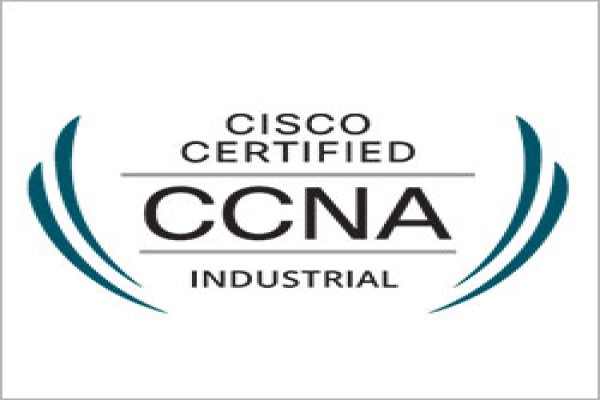In the rapidly evolving field of information technology (IT), certifications play a crucial role in validating professionals’ skills and expertise. Among the myriad of certification options available, two prominent areas of focus are Cisco Certified Network Associate (CCNA) and hardware certifications. In this blog post, we’ll delve into these certification paths, explore their significance in the IT industry, and provide insights into how they can enhance your career prospects

Benefits of CCNA Certification:
-
Industry Recognition: CCNA certification is highly regarded in the IT industry and is often a prerequisite for network engineering and administration roles.
-
Career Advancement: Holding a CCNA certification can open doors to various career opportunities, including network engineer, systems administrator, and network analyst positions.
-
Enhanced Skills: CCNA training equips professionals with in-depth knowledge and practical skills required to design and manage complex network infrastructures.
-
Networking Opportunities: CCNA certified professionals become part of the Cisco Certified community, gaining access to exclusive resources, forums, and networking events.
CCNA CERTIFICATIONS
1. CCNA Routing & Switching
CCNA Routing and Switching certification is essential for networking professionals to stay competitive in today’s evolving IT landscape. It provides foundational knowledge of Cisco networking and prepares individuals to deploy, configure, operate, and troubleshoot Cisco routers and switches within small enterprise networks. This certification opens doors to career advancement opportunities and ensures that professionals remain up-to-date with the latest technologies in networking.
2. CCNA Security
CCNA Security Certification acknowledges associate-level networking professionals capable of safeguarding small enterprise networks against external threats. They deploy security infrastructure, identify network vulnerabilities, and mitigate risks effectively.This certification equips networking professionals with essential security skills to install, troubleshoot, and monitor network and security devices. They ensure data and network integrity, availability, and confidentiality are maintained.
3. CCNA Wireless
As wireless technology continues to rapidly expand across various sectors, the need for proficient Cisco Wireless Professionals has surged. A workforce equipped with the skills to design, monitor, and support wireless technology is essential for achieving business objectives effectively.CCNA Wireless Certification, at the associate level, validates individuals’ abilities to configure, implement, and support Cisco wireless LANs. This certification ensures that professionals possess the necessary skillset and knowledge to excel in the dynamic field of wireless networking.
4. CCNA Cloud
As companies increasingly transition their ecosystems to dynamic and robust cloud environments, the need for agile processes, flexible systems, and efficient delivery capabilities has become paramount.Cisco CCNA Cloud Certification acknowledges the expertise of networking professionals in cloud technology and validates their proficiency in developing, advancing, and supporting the organization’s cloud infrastructure. This certification empowers cloud engineers, cloud administrators, and network engineers with the skillset required to deploy and maintain Cisco Cloud Solutions, effectively meeting the evolving IT demands of modern technology.
5. CCNA Service Provider
Staying abreast of evolving trends in core networking technologies within the Service Provider Industry is crucial. CCNA Service Provider certification addresses this need.CCNA Service Provider acknowledges the proficiency of network engineers, technicians, and designers in configuring, implementing, and troubleshooting baseline Cisco Service Provider Next-Generation networks. Achieving this certification validates individuals’ abilities to deploy, troubleshoot, and support carrier-grade network infrastructures and Next-Generation Service Provider networks.
Hardware Certifications:
Apart from networking certifications like CCNA, hardware certifications concentrate on verifying professionals’ proficiency in conceptualizing, implementing, setting up, and upholding hardware elements and systems. These certifications encompass an extensive spectrum of subjects, including:
-
Foundational Principles of Computer Hardware: Understanding the basics of computer hardware components and their functionalities.
-
Configuration and Maintenance of Server Hardware: Mastery in setting up and managing server hardware, ensuring optimal performance and reliability.
-
Installation and Problem Resolution of Network Devices: Proficiency in deploying and resolving issues related to network devices, ensuring seamless connectivity and efficient network operations.
-
Peripheral Devices and Storage Solutions: Competence in handling peripheral devices and implementing various storage solutions, catering to diverse business needs.
-
Principles of Hardware Security: Acquiring knowledge and skills in implementing hardware security measures to safeguard systems and data from potential threats.
-
Emerging Hardware Technologies: Staying abreast of the latest advancements in hardware technologies, enabling professionals to adapt to evolving industry trends and requirements.

Conclusion:
CCNA and hardware certifications are essential for IT professionals seeking advancement in networking and hardware roles. They demonstrate expertise and commitment to excellence in the field, enhancing job prospects and providing essential skills for success in today’s competitive IT landscape. Investing in these certifications is a strategic move for career advancement, offering access to diverse opportunities in the evolving IT industry. Whether specializing in networking or hardware, pursuing certifications is key to propelling your career forward.